Addison's Disease is primary adrenal insufficiency, where the adrenal glands do not produce hormones, mainly cortisol, which is essential for life. Addison's disease involves a chronic deficiency of adrenal cortex hormones.
It thus occurs as a result of direct damage to the adrenal glands. Addison's disease is a chronic condition, but when properly treated, it does not affect life expectancy. The causes of Addison's disease can be various. Still, the most common belongs to an autoimmune process in which antibodies are formed against enzymes that produce adrenal cortical hormones.
The symptoms of Addison's disease are due to a deficiency of adrenal cortical hormones. In the early stages of Addison's disease, symptoms may be low in intensity, which makes diagnosis much more difficult. Because of the rich clinical picture, Addison's disease may be confused with different diseases. The diagnosis of Addison's disease is complex, and laboratory tests mainly provide much information. Treatment consists of chronic, lifelong substitution therapy. The prognosis of Addison's disease depends largely on the underlying cause of the condition. Untreated Addison's disease inevitably causes death.

Addison's disease is a syndrome of clinical symptoms caused by a long-term deficiency of adrenal cortical hormones![]() resulting from direct damage to the adrenal glands. The adrenal glands produce many essential hormones for the body's normal functioning. These include:
resulting from direct damage to the adrenal glands. The adrenal glands produce many essential hormones for the body's normal functioning. These include:
Cortisol – It is a steroid hormone produced in the striatal layer of the adrenal cortex. The primary function of the hormone is to increase blood glucose concentrations in stressful situations, where the demand for glucose, in particular, increases. It also has a strong anti-inflammatory effect. At the metabolic level, the hormone is responsible for the metabolism of glucose, proteins, and fats, as well as the regulation of blood pressure and the work of the immune system. When cortisol levels are too low, various symptoms emerge, including reduced stress tolerance.
Aldosterone – Aldosterone is a steroid hormone. It is produced in the body by the adrenal glands, specifically the glomerular layer of the adrenal cortex. The hormone is involved in the regulation of water and mineral metabolism. Aldosterone increases potassium ion excretion and enhances sodium ion resorption. This regulation is essential in maintaining normal blood pressure. The occurrence of symptoms indicative of reduced aldosterone levels, i.e., hypoaldosteronism, is due to insufficient sodium concentration and dehydration.
Androgens – The androgen hormones are androstenedione![]() , dihydrotestosterone
, dihydrotestosterone![]() , dehydroepiandrosterone
, dehydroepiandrosterone![]() , and testosterone
, and testosterone![]() . The adrenal glands are responsible for their production and secretion in both sexes. At the same time, in men, this role is additionally performed by Leydig cells in the testes and, in women, to a small extent, by the ovaries. They are involved in the development and formation of male genitalia already during fetal life and the production of secondary sexual characteristics. In men, a deficiency of these hormones affects erectile dysfunction and a decrease in vital energy. In women, there is a decrease in libido, and ovarian steroid production is low.
. The adrenal glands are responsible for their production and secretion in both sexes. At the same time, in men, this role is additionally performed by Leydig cells in the testes and, in women, to a small extent, by the ovaries. They are involved in the development and formation of male genitalia already during fetal life and the production of secondary sexual characteristics. In men, a deficiency of these hormones affects erectile dysfunction and a decrease in vital energy. In women, there is a decrease in libido, and ovarian steroid production is low.

Addison's disease occurs when the adrenal glands become damaged. The causes of it can be various. The following causes of Addison's disease are distinguished:
Autoimmune process – It is the most common cause of Addison's disease. The autoimmune process results in the formation of antibodies![]() against enzymes involved in the production of adrenal hormones. Describing the process simply, the immune system considers its cells foreign and tries to fight them off in Addison's disease. Autoimmune inflammation of the adrenal cortex slowly and painlessly degrades the organ. Other autoimmune diseases, most commonly thyroid, may co-occur with Addison's disease.
against enzymes involved in the production of adrenal hormones. Describing the process simply, the immune system considers its cells foreign and tries to fight them off in Addison's disease. Autoimmune inflammation of the adrenal cortex slowly and painlessly degrades the organ. Other autoimmune diseases, most commonly thyroid, may co-occur with Addison's disease.
Tumors – Various types of cancer![]() and metastatic tumors can cause problems with hormone production. Such cancers include lymphomas and bilateral adrenal cancer, among others. Most common, however, are kidney cancer and lung cancer. If the tumor occupies both adrenal glands, it can impair their hormone-secreting functions, which will manifest in symptoms of Addison's disease.
and metastatic tumors can cause problems with hormone production. Such cancers include lymphomas and bilateral adrenal cancer, among others. Most common, however, are kidney cancer and lung cancer. If the tumor occupies both adrenal glands, it can impair their hormone-secreting functions, which will manifest in symptoms of Addison's disease.
Infectious diseases – The development of Addison's disease is also affected by contagious diseases. Specifically, tuberculosis![]() is an infectious disease caused by mycobacteria, which attacks primarily the respiratory tract. Tuberculosis is treatable but can cause complications in the type of Addison's disease. In addition to it, infectious diseases such as fungal infections and infections associated with AIDS belong to the causes of Addison's disease.
is an infectious disease caused by mycobacteria, which attacks primarily the respiratory tract. Tuberculosis is treatable but can cause complications in the type of Addison's disease. In addition to it, infectious diseases such as fungal infections and infections associated with AIDS belong to the causes of Addison's disease.
Metabolic disorders – Metabolic disorders can also cause Addison's disease. It can be amyloidosis![]() , in which an extracellular accumulation of insoluble protein is in tissues and organs. It causes damage to the organs involved, most often the liver, kidneys, or heart. Addison's disease can also be caused by hemochromatosis, a metabolic disease, the essence of which is an excessive accumulation of iron in the body. If the level of this element is too high, problems with the heart, joints, pancreas, and liver occur.
, in which an extracellular accumulation of insoluble protein is in tissues and organs. It causes damage to the organs involved, most often the liver, kidneys, or heart. Addison's disease can also be caused by hemochromatosis, a metabolic disease, the essence of which is an excessive accumulation of iron in the body. If the level of this element is too high, problems with the heart, joints, pancreas, and liver occur.
Congenital disorders – In addition, disorders of adrenal hormone production can result from various congenital disorders. It may be congenital adrenal hyperplasia or adrenal hypoplasia. In addition, it can also be Allgrove syndrome![]() , a rare, genetically determined syndrome with autosomal recessive inheritance. Congenital disorders also include insensitivity of the ACTH receptor, caused by damage to the pituitary gland, causing a lack of the stimulus responsible for cortisol production.
, a rare, genetically determined syndrome with autosomal recessive inheritance. Congenital disorders also include insensitivity of the ACTH receptor, caused by damage to the pituitary gland, causing a lack of the stimulus responsible for cortisol production.
Medications – Decreased adrenal hormone secretion may be related to medications. It refers to taking drugs that inhibit adrenal hormone synthesis, which belong to ketoconazole![]() , methyrapone
, methyrapone![]() , and e*******e
, and e*******e![]() , among others. Also, chronic intake of glucocorticosteroids inhibits the secretion of ACTH, and thus, it causes the adrenal glands to shrink. Sudden withdrawal of these drugs can trigger symptoms of hypothyroidism.
, among others. Also, chronic intake of glucocorticosteroids inhibits the secretion of ACTH, and thus, it causes the adrenal glands to shrink. Sudden withdrawal of these drugs can trigger symptoms of hypothyroidism.
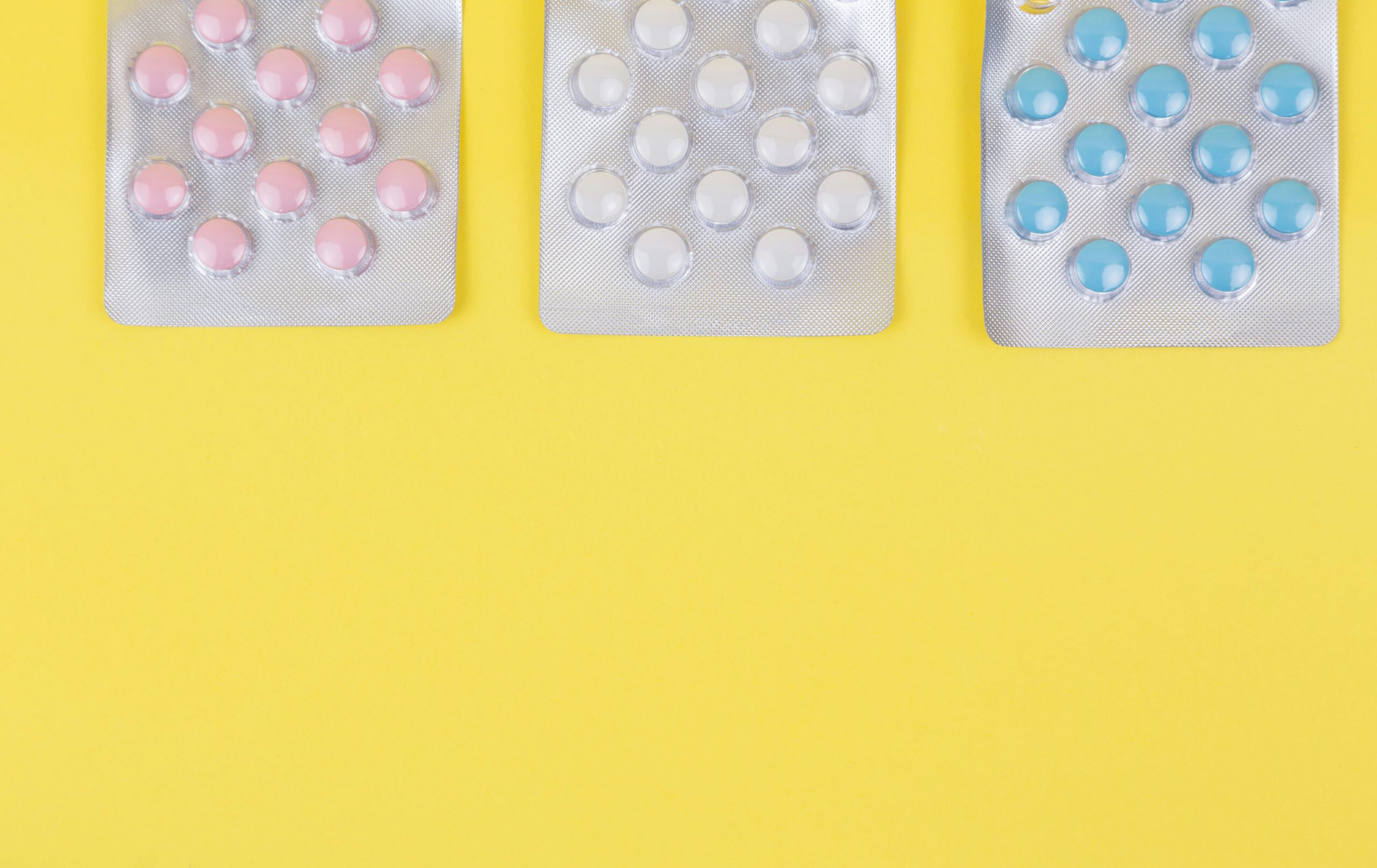
Symptoms of Addison's disease usually appear when 90% of the tissue of both adrenal glands is destroyed. In the early stages of Addison's disease, symptoms may be poor, which makes diagnosis much more difficult. Because of the rich clinical picture, Addison's disease can also be confused with different diseases. Symptoms of Addison's disease include:
Persistent weakness – At the beginning of the disease, episodes of weakness, lack of appetite, and muscle pain occur only temporarily in stressful situations, especially after heavy exercise. In Addison's disease, atypical symptoms associated with constant weakness are most common. There is a tendency to periodic fainting, easy fatigability, muscle weakness, poor tolerance of physical exertion, and stressful situations.
Hyperpigmentation – It is a characteristic symptom of Addison's disease. It is a darkening of the skin, mainly affecting sun-exposed areas, elbows, flexor lines of the hands, areolae, and scars. In some cases, there are also brown spots on the oral mucosa. In Addison's disease, skin symptoms in generalized skin hyperpigmentation![]() are among the key signs of the condition.
are among the key signs of the condition.
Gastrointestinal symptoms – On the gastrointestinal side, there is often a decrease in appetite, nausea leading to vomiting, loose stools, and an increased craving for salty foods![]() . Lack of appetite can lead to apparent weight loss. Salarying for salty snacks increases when the adrenal glands are not working properly. The water and electrolyte balance is disturbed when the adrenal glands malfunction. This is what this typical Addison's disease symptom is associated with.
. Lack of appetite can lead to apparent weight loss. Salarying for salty snacks increases when the adrenal glands are not working properly. The water and electrolyte balance is disturbed when the adrenal glands malfunction. This is what this typical Addison's disease symptom is associated with.
Low blood pressure – In Addison's disease, bradycardia, or a shallow heart rate, is not a common symptom. However, low blood pressure and postural hypotension![]() , or a drop in blood pressure with a change in body position, are present. Orthostatic hypotension occurs when standing up from a lying or sitting position and can manifest as brief dizziness and visual disturbances. After changing body position, patients often become dark before their eyes and weak, which can lead to fainting.
, or a drop in blood pressure with a change in body position, are present. Orthostatic hypotension occurs when standing up from a lying or sitting position and can manifest as brief dizziness and visual disturbances. After changing body position, patients often become dark before their eyes and weak, which can lead to fainting.
Low blood glucose – Cortisol is responsible for participating in the regulation of blood glucose and the regulation of the amount and distribution of body fat. Addison's disease can, therefore, cause low blood glucose levels or hypoglycemia![]() . In hypoglycemia, blood sugar levels drop to levels that are too low, causing symptoms such as sweating, trembling, feeling hungry, and even unconsciousness. There is no set limit above which symptoms occur.
. In hypoglycemia, blood sugar levels drop to levels that are too low, causing symptoms such as sweating, trembling, feeling hungry, and even unconsciousness. There is no set limit above which symptoms occur.
Changes in blood count – Much valuable information in diagnosing Addison's disease is provided by laboratory tests. Abnormalities in blood morphology are observed. There is eosinophilia, an increased number of acidophilic granulocytes in the blood, and neutropenia, or a decrease in the level of neutrophilic granulocytes in the blood. In addition, lymphocytosis, or an increase in the number of lymphocytes in the blood, and monocytosis, or an increase in the number of monocytes in the blood, can also be observed.
Menstrual disorders – Adrenal insufficiency leads to decreased secretion of adrenal steroid hormones. This results in menstrual disorders of oligomenorrhoea and even secondary amenorrhoea. As a result of reduced androgen secretion, there is a decrease in libido. Men, on the other hand, may have problems achieving an erection.

Addison's disease is otherwise known as primary adrenal insufficiency![]() . It is a set of symptoms that occur due to a chronic deficiency of hormones the adrenal cortex produces. The initial step in diagnosing Addison's disease is a physical examination of the patient history. The diagnosis of Addison's disease is complex, and tests provide much information. Tests in the diagnosis of Addison's disease include:
. It is a set of symptoms that occur due to a chronic deficiency of hormones the adrenal cortex produces. The initial step in diagnosing Addison's disease is a physical examination of the patient history. The diagnosis of Addison's disease is complex, and tests provide much information. Tests in the diagnosis of Addison's disease include:
Blood morphology – Blood count provides a lot of helpful information in diagnosing Addison's disease. Changes in blood composition in Addison's disease are very pronounced. There is neutropenia, eosinophilia, lymphocytosis, and monocytosis. In addition, electrolyte abnormalities![]() can also be seen in Addison's disease patients, so testing for this is also essential. In addition, blood counts can also determine glucose, urea, and creatinine values.
can also be seen in Addison's disease patients, so testing for this is also essential. In addition, blood counts can also determine glucose, urea, and creatinine values.
Electrolyte testing – Electrolyte disorders are common in Addison's disease. The most common is hyponatremia or too low a sodium concentration in the blood. Most patients also have hyperkalemia or too high a potassium concentration in the blood. In addition, azotemia may also occur in Addison's disease. This is an abnormal concentration of urea, creatinine, and other non-protein nitrogen compounds in the blood.
Hormone tests – Hormone tests in people with Addison's disease show high levels of ACTH with deficient cortisol levels. The pituitary gland produces adrenocorticotropic hormone and stimulates adrenal secretion. The test should be performed on a blood sample in the morning, and a stimulation test with synthetic c***********n should be performed. In addition, low blood levels of dehydroepiandrosterone, androstenedione, and aldosterone are observed.
ACTH stimulation test – A c***********n stimulation test![]() , a synthetic polypeptide with ACTH activity, is used to diagnose Addison's disease. Determination of ACTH levels in the blood allows the diagnosis of adrenal insufficiency and hyperadrenalism. An increase in ACTH is typical of primary adrenal insufficiency in Addison's disease. After a certain period after tetracosactide administration, the test determines cortisol concentration in the blood or glucocorticosteroid metabolites in the urine.
, a synthetic polypeptide with ACTH activity, is used to diagnose Addison's disease. Determination of ACTH levels in the blood allows the diagnosis of adrenal insufficiency and hyperadrenalism. An increase in ACTH is typical of primary adrenal insufficiency in Addison's disease. After a certain period after tetracosactide administration, the test determines cortisol concentration in the blood or glucocorticosteroid metabolites in the urine.
Immunological tests – Immunological tests are a type of test that evaluates the function of the immune system. They are used to detect both existing and past infectious or autoimmune diseases. It is also used in the diagnosis of Addison's disease. In people with Addison's disease, autoantibodies are observed in immunological tests. To determine the cause of adrenal insufficiency, it is necessary to test for anti-adrenal and sometimes anti-thyroid antibodies directed against other organs.
Imaging tests – If necessary, the doctor may also refer the patient for imaging tests such as X-rays, CT scans, and abdomen ultrasound. On a chest X-ray, calcifications are observed. Additional examinations are designed to note changes in various organs and determine potential damage, essential in the subsequent treatment selection.
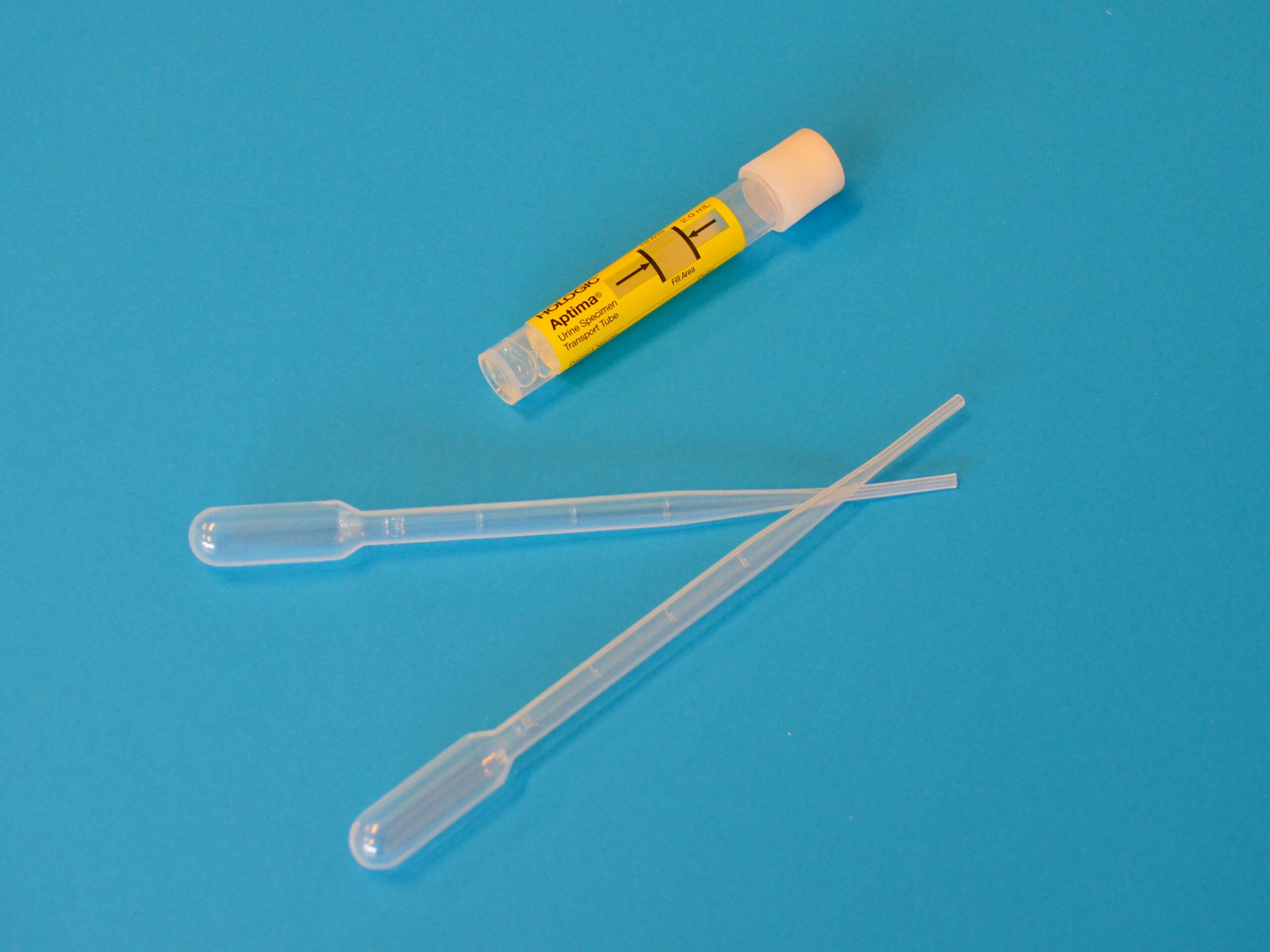
Treatment consists of chronic, lifelong therapy. It consists of chronic, lifelong intake of hormones. Because the drugs replace the hormones produced by the adrenal glands in healthy people, it is called substitution therapy![]() . Supplementation depends on the deficiency present. In addition, the patient should carry written information about their adrenal insufficiency.
. Supplementation depends on the deficiency present. In addition, the patient should carry written information about their adrenal insufficiency.
Glucocorticosteroids – Therapy may include taking glucocorticosteroids to replace the function of cortisol. This therapy seeks to restore the natural diurnal rhythm of cortisol. In this case, appropriate dosages should be considered, considering stressful situations and physical activity. Excessive cortisol intake can have side effects.
Fludrocortisone – Administered as therapy, the hormone replaces the function of aldosterone. The individual needs of the patient should be taken into account and the appropriate dose selected, as excess intake of the hormone can also cause side effects in the form of hypertension and edema.
Dehydroepiandrosterone – This hormone is designed to replace the function of adrenal androgens. Including DHEA in therapy is recommended for patients who observe life-diminishing symptoms. Such experiences are widespread in women, who experience worse moods and a tendency to depression, reduced libido, and menstrual disorders.
In treating Addison's disease, it is also crucial to compensate for the damage caused by malfunctioning adrenal glands. To this end, electrolyte and metabolic disorders are equalized. Treatment of Addison's disease involves bringing about the resolution of symptoms and improving the patient's well-being.
Properly treated, the disease does not affect life expectancy. Addison's disease can result in reduced fertility. Proper treatment of the disease makes it possible to conceive a child. Recognition of Addison's disease is significant. The mortality rate is very high in untreated pregnant women.
Addison's disease is a result of your adrenal glands not being able to make essential hormones, mainly cortisol. This condition affects your adrenal cortex hormones over a long period. It happens because of damage to the adrenal glands. While Addison's disease is a long-term issue, it doesn't shorten lifespan if treated right. Various reasons can cause Addison's disease, but the most common one is when our bodies mistakenly create antibodies that fight against the enzymes needed for adrenal cortical hormone production.
Addison's disease symptoms are because of adrenal cortical hormone deficiency. At the start of Addison's disease, symptoms might be weak, making diagnosis trickier. Due to a wide range of symptoms, Addison's disease can often be mixed up with other conditions. Lab tests usually provide the most information for diagnosing Addison's disease. Treating Addison's involves lifelong replacement therapy. The outlook mainly relies on what's causing Addison's. If not treated, Addison's disease can cause death.
Table of Contents
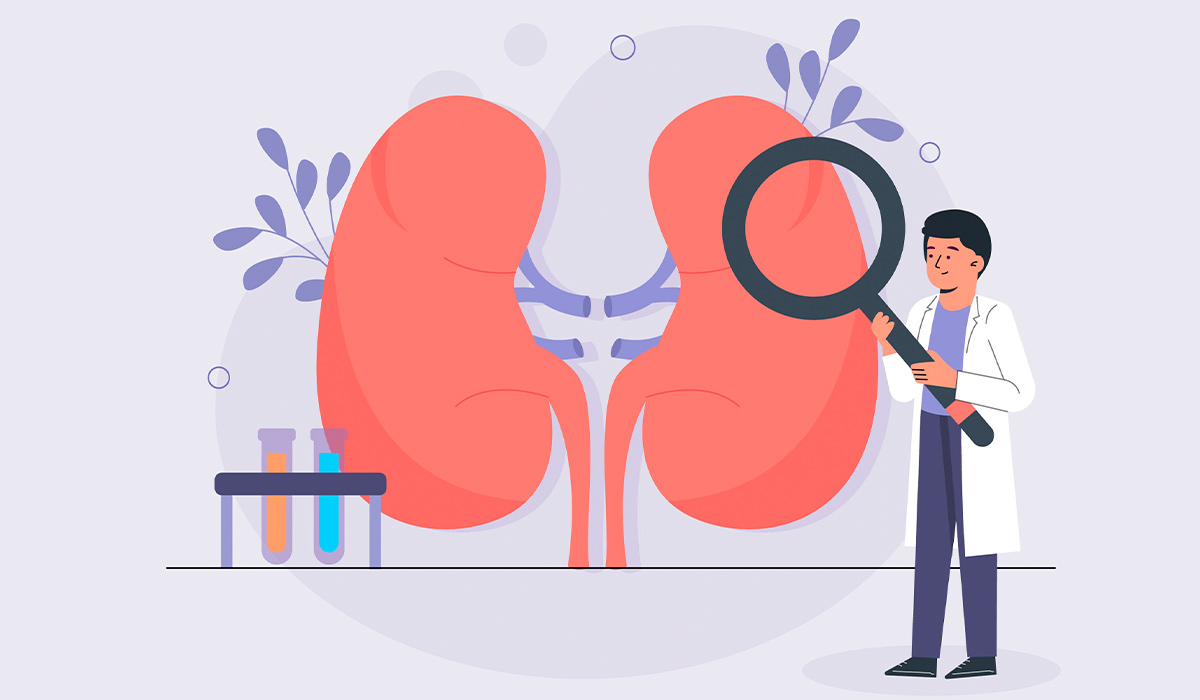
Adrenal fatigue is a medical condition in which the adrenal glands do not produce enough hormones to function properly. Check… read more »
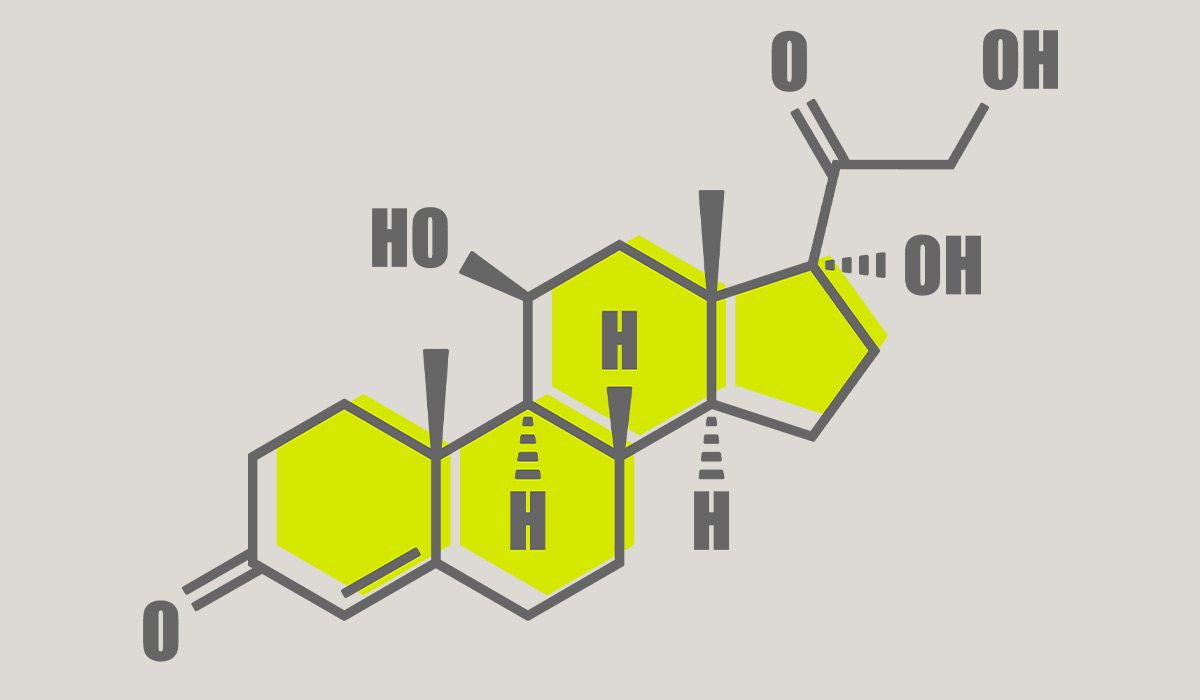
Cortisol is often referred to as the “stress hormone” because it plays a key role in the body's response to… read more »

Cushing's syndrome is a set of symptoms caused by excess glucocorticoids in the body. What are the causes of the… read more »

An endocrinologist is a doctor who deals with the organs that secrete hormones. Learn about diseases that are related to… read more »
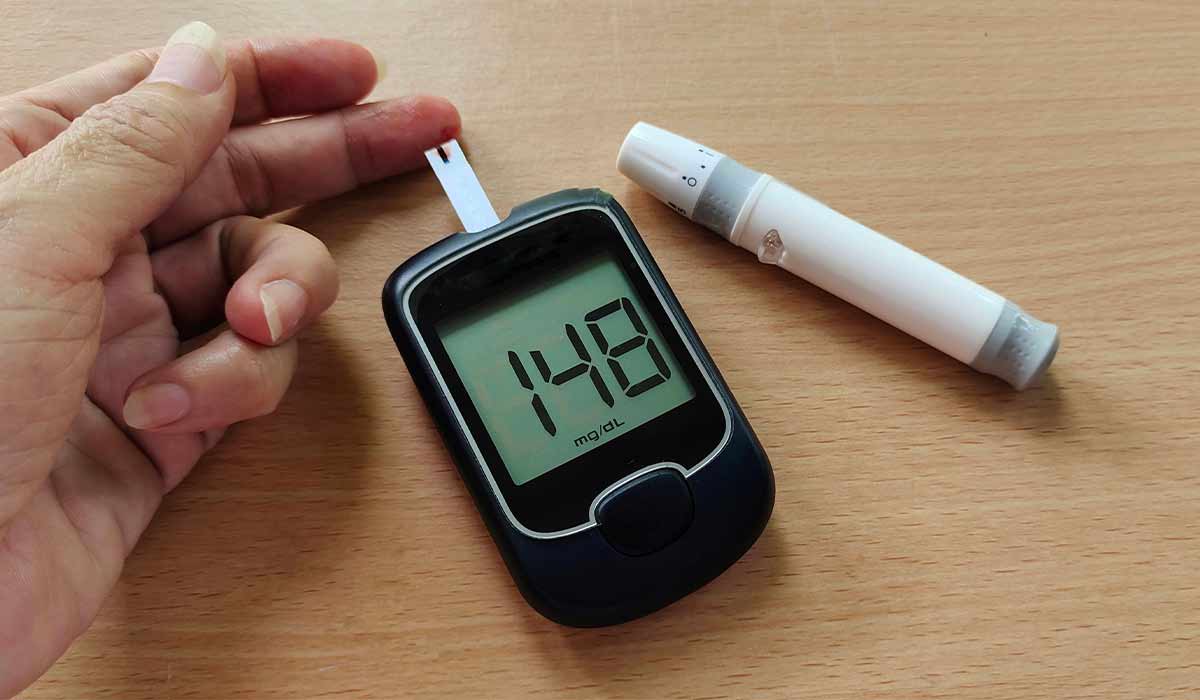
When blood glucose levels are too high, it leads to a hyperglycemia. Discover effective ways to reduce your sugar levels… read more »
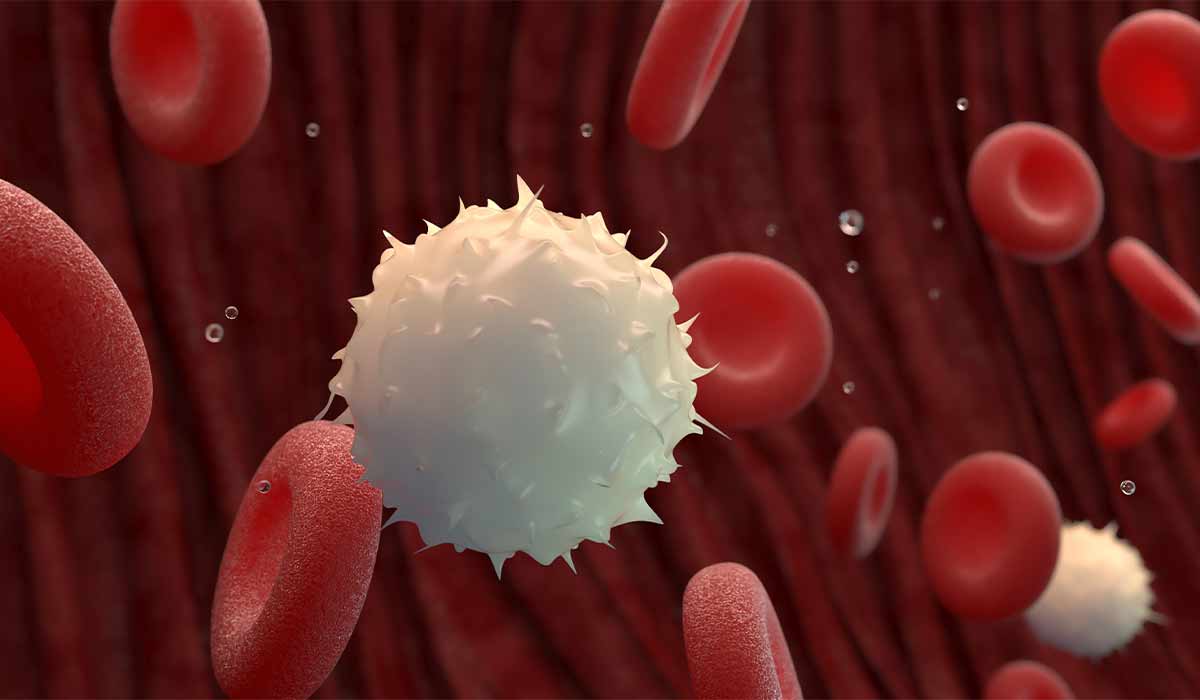
Autoimmune diseases are conditions in which the immune system works incorrectly – it begins to attack the body's tissues. What… read more »

Normal blood glucose concentration is an important determinant of our health. Learn what are the symptoms of too high or… read more »

Hypoglycemia is a set of symptoms associated with a decrease in blood sugar levels, which disappears after the administration of… read more »

Hyperthyroidism is a condition in which the body produces too many hormones. This causes various symptoms and complications. Check out… read more »